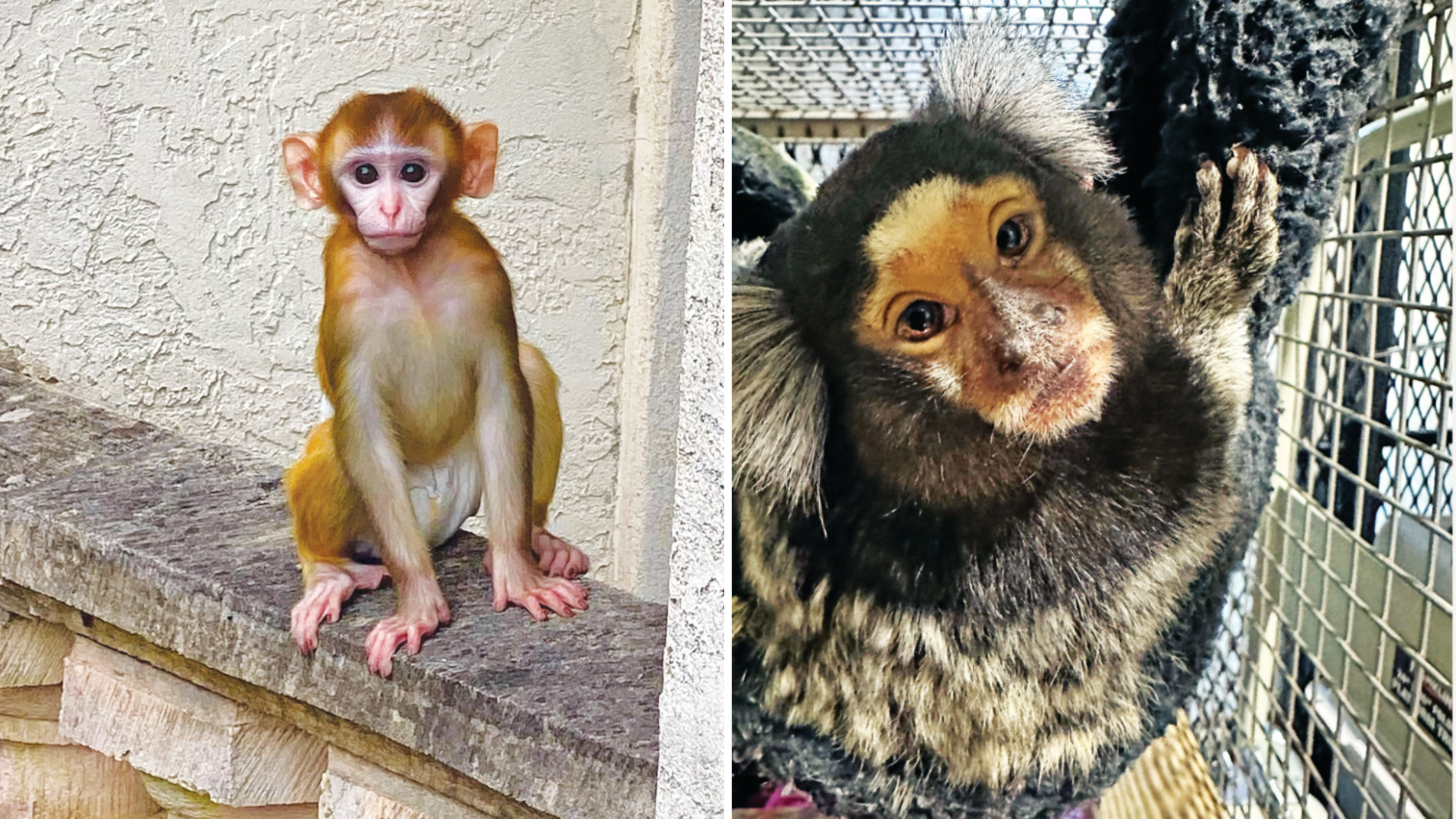Primarily Primates is starting off the New Year with four new residents—two marmosets, a kinkajou and a macaque.
Marmosets Kobe and Kiara were bought by their former owner and her family so they could breed them and sell their offspring to the pet trade. The family realized that wild animals shouldn’t be kept as pets—as Kobe reached sexual maturity, he became more and more aggressive. PPI rescued them from this failed commercial endeavor.
They are thriving in their enclosure, which is designed to be like their natural habitat. Our marmoset habitats feature a dirt floor and flora from which marmosets can cling to and leap from, much like they would in the jungle in their native Brazil.
Kinkajou Jethro was picked up by San Antonio Animal Control, and no one claimed him, so one of the officers called Primarily Primates. In the wild, kinkajous live in the tropical forests of Central and South America, where they spend most of their time in the trees.
Jethro can turn his feet backwards to run easily in either direction along branches or up and down trunks. He also has a prehensile, or gripping, tail that he uses much like another arm. In the wild, Kinkajous often hang from this incredible tail, which also aids their balance while they sleep high in the canopy.
Though many of its features and traits sound like those of a primate, the kinkajou is related to the raccoon. Kinkajous are sometimes called honey bears because they raid bees' nests. They use their long, skinny tongues to slurp honey from a hive, and to remove insects like termites from their nests. We plan to give Jethro plenty of Kong dog toys filled with agave nectar as food enrichment.
For reasons unknown, rhesus macaque Lucy Jean was rejected by her mother, who arrived pregnant at PPI with her mate after the zoo they were exploited by shuttered. In the wild rejected infants would usually die, but PPI care staff and members came to the rescue.
Lucy Jean was hand-raised by PPI member Charles Price, who has worked professionally with primates in the past.
Price and his partner Jose Manuel Millan Jr. constantly held Lucy Jean and made her feel secure at their home. She required around-the-clock care because in the wild, during the first weeks of life, the mother macaque maintains contact with her infant almost constantly.
Since Lucy Jean has grown and is back at the sanctuary, she has been introduced to another young female rhesus macaque with positive results.


